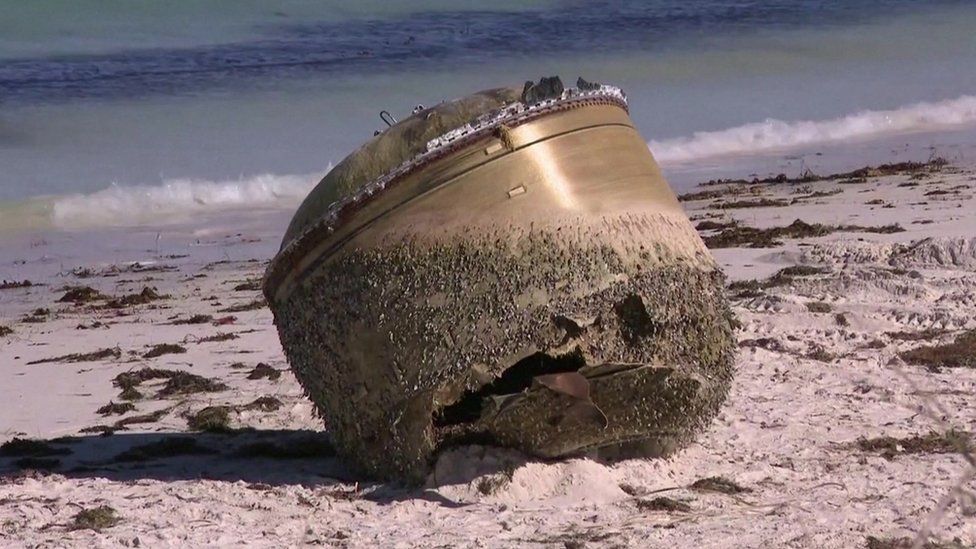India’s space chief says a giant metal dome that washed up on an Australian beach was definitely part of a rocket – but may or may not be Indian.
“We can’t confirm it’s ours unless we analyse it,” S Somanath told the BBC.
There has been wild speculation about the object ever since it was discovered at Green Head beach, about 250km (155 miles) north of Perth, at the weekend.
Some even said it may be from India’s latest Moon mission launch last Friday but experts quickly ruled that out.
The cylindrical object, about 2.5m wide and between 2.5m and 3m long, has generated a lot of excitement among the residents of Green Head beach.
It was initially speculated that the wreckage could be a part of MH370 – a plane that went missing off the west Australian coast in 2014 with 239 passengers on board.
- Historic India Moon mission lifts off successfully
- Mysterious dome washes up on Australian beach
But aviation experts soon clarified that the item couldn’t have come from a commercial aircraft and that it was possibly a fuel tank from a rocket that had fallen into the Indian Ocean at some stage.
The Australian Space Agency then said it was possible the giant cylinder could have fallen from a “foreign space launch vehicle”.
This resulted in speculation that the object was a fuel tank of a PSLV – the Polar Satellite Launch Vehicles that the Indian Space Research Organisation (Isro) regularly uses to launch satellites into space.
Since India had launched Chandrayaan-3 spacecraft to Moon last Friday, it led to speculation that the debris came from that – despite experts saying the object had been in the water for at least a few months. Photos showing its extensive barnacle cover support that argument.
Mr Somanath, who heads Isro, told the BBC that there was “no mystery” about the object, confirming that “it is part of some rocket”.
“It could be a PSLV or any other and unless we see and analyse it, it cannot be confirmed,” he said. The Australian authorities have yet to release more details.
Mr Somanath, however, confirmed that “some of the PSLV parts are known to have fallen in the sea beyond Australia’s Exclusive Economic Zone” and said that the object “may have been floating for a long time and finally reached shore”.
He added that there was no danger associated with the debris.
Authorities in Australia, however, have said they were treating the item “as hazardous” and police have requested people to keep a safe distance. Some experts said it could contain toxic materials.
Related Topics
- Asia
- Chandrayaan programme
- Exploration of the Moon
- India
